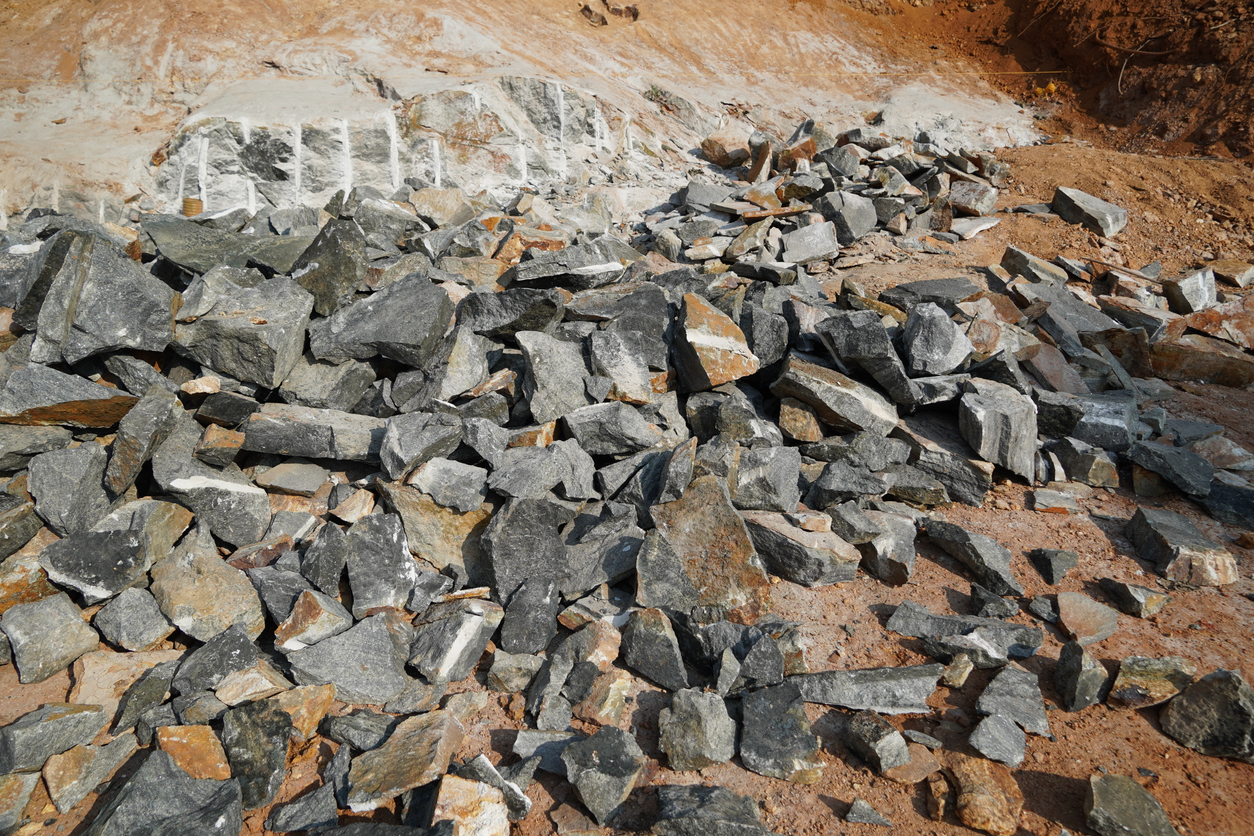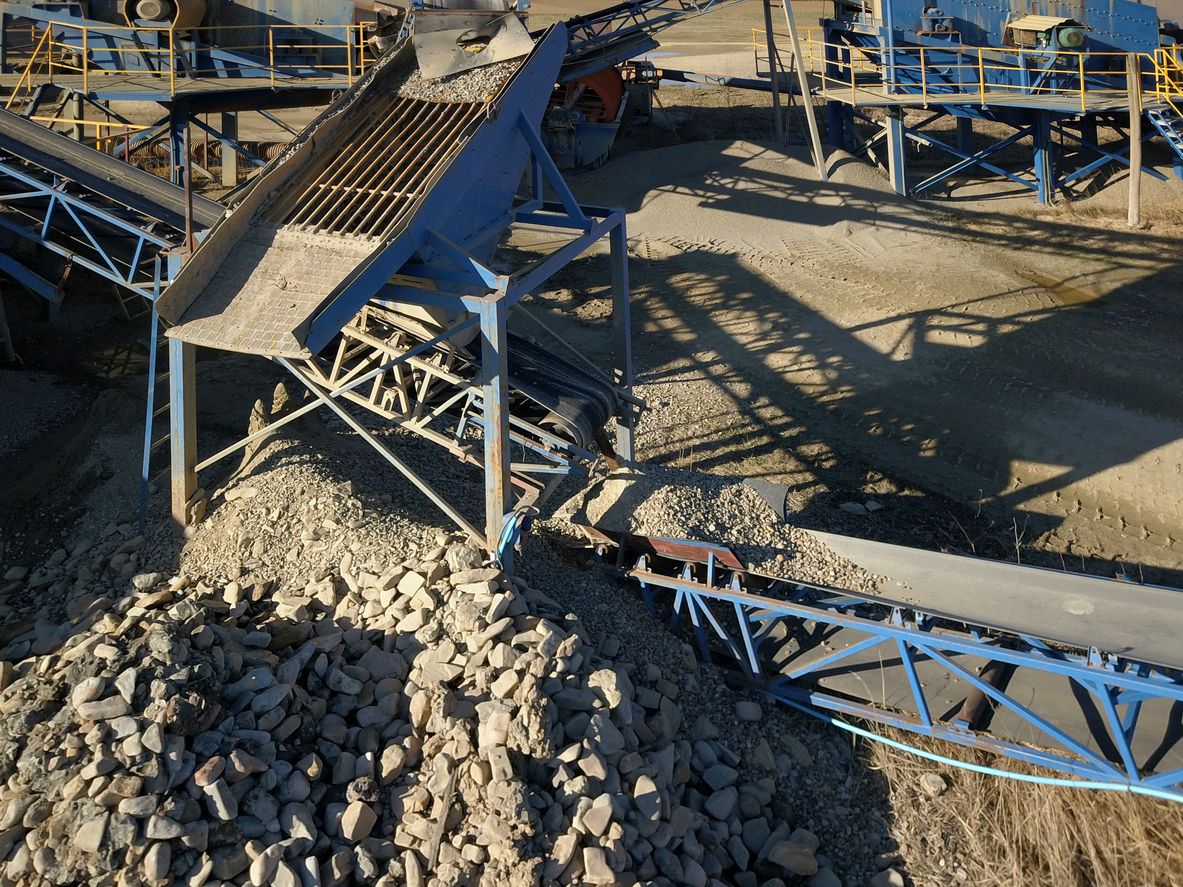From Miners to Buyers: How Wigmore Trading Facilitates the Global Limestone Trade
From Miners to Buyers: How Wigmore Trading Facilitates the Global Limestone Trade
Are you curious about the intricate journey of limestone, from its extraction deep within the mines to finding its place in countless industries worldwide? Look no further! Welcome to our blog post on Wigmore Trading, the leading facilitator in the global limestone trade. Join us as we dive into their fascinating role and unravel how they connect miners with buyers seamlessly. Get ready for an exhilarating exploration of this crucial industry that shapes our modern world!
Introduction to Wigmore Trading and their role in the global limestone trade
Introduction to Wigmore Trading and their Role in the Global Limestone Trade
Limestone is a versatile and highly sought-after natural resource that is used in various industries, from construction to agriculture. As the demand for limestone continues to grow globally, there is a need for efficient and reliable trading companies that can facilitate the supply of this valuable commodity.
One such company that plays a crucial role in the global limestone trade is Wigmore Trading. With over 20 years of experience in the industry, Wigmore has established itself as a leading player in the international market for limestone trading.
Established in 1998, Wigmore Trading has steadily grown its business by forging strong relationships with both suppliers and buyers worldwide. The company’s primary focus is on sourcing high-quality limestone from reputable quarries around the world and distributing it to customers across different industries.
Wigmore Trading’s extensive network of suppliers includes some of the most renowned quarries in countries like Vietnam, India, Egypt, Turkey, and Oman. This allows them to offer a wide range of limestone products to meet the diverse needs of their clients.
The company’s expertise lies not only in sourcing top-quality limestone but also ensuring smooth logistics operations through efficient transportation arrangements. They have established reliable shipping routes and partnerships with trusted logistics providers to ensure timely delivery of orders to clients across continents.
History and significance of limestone as a natural resource
History:
Limestone has been used by humans for thousands of years and holds a significant place in history as it is one of the most versatile and widely-used natural resources. The use of limestone dates back to ancient civilizations such as the Greeks, Romans, and Egyptians who utilized it in construction, art, and agriculture. The Great Pyramids of Giza were built with limestone blocks, showcasing its durability and strength.
Significance:
Limestone is a sedimentary rock formed from the accumulation of marine fossils over millions of years. It is composed mainly of calcium carbonate and can be found in various colors such as white, grey, yellow, or black depending on the impurities present during its formation. Due to its unique properties and widespread availability, limestone has played a vital role in shaping human civilization.
Construction:
Perhaps the most well-known use of limestone is in building materials. Its high strength and resistance to weathering make it an ideal choice for constructing buildings, bridges, roads, and other structures. The ancient Romans used lime mortar made from limestone to build their famous architectural marvels like the Colosseum and aqueducts which are still standing strong today.
Agriculture:
In addition to its use in construction, limestone also plays a crucial role in agriculture. Limestone contains essential nutrients such as calcium and magnesium that are necessary for plant growth. When added to soil as agricultural lime or fertilizer, it neutralizes acidity levels creating a more favorable environment for crops to grow.
The process of mining limestone and its impact on the environment
Mining limestone is a complex process that involves various stages and techniques, each having its own impact on the environment. In this section, we will delve into the details of how limestone is mined and explore the potential environmental consequences.
The Process of Mining Limestone:
Limestone is a sedimentary rock composed mainly of calcium carbonate (CaCO3). It is formed over millions of years through the accumulation and compression of shells, coral, and other marine organisms. These deposits are usually found in shallow waters or on land and can range in thickness from a few feet to hundreds of feet.
1. Exploration:
The first step in mining limestone is to determine the location and extent of the deposit. Geologists use various methods such as drilling, remote sensing technology, and geological mapping to identify suitable sites for mining. This process requires heavy machinery and has its own environmental impacts, including noise pollution, emissions from vehicles, and disruption of natural habitats.
2. Clearing the Site:
Once a suitable location has been identified, the next step is to clear the area for mining activities. This involves removing vegetation, topsoil, and any other obstacles that may impede access to the limestone deposit. The removal of vegetation can lead to loss of biodiversity while disturbing topsoil can affect soil quality and water retention.
How Wigmore Trading works with trusted miners to ensure quality and ethical practices
At Wigmore Trading, we understand the importance of ensuring quality and ethical practices in the global limestone trade. As a leading supplier of high-quality limestone to buyers all over the world, we take our responsibility seriously to source our products from trusted miners who adhere to strict standards.
We believe that responsible sourcing not only benefits our customers but also supports sustainable development and promotes fair treatment of workers and local communities. That is why we have established strong partnerships with reputable miners who share our values and commitment to ethical practices.
One way we ensure the quality of our products is by working closely with trusted miners who have a proven track record of delivering top-notch limestone. These miners have been carefully selected based on their expertise, experience, and adherence to international quality standards.
Our team at Wigmore Trading conducts thorough due diligence before partnering with any miner. We visit their mines personally, assess their facilities and processes, and examine their environmental impact management strategies. This enables us to evaluate their capabilities, reputation, and commitment to best practices.
Moreover, we also require our partner miners to comply with industry-specific certifications such as ISO 9001 for quality management systems and ISO 14001 for environmental management systems. These certifications provide assurance that the mining operations are conducted in an environmentally responsible manner while maintaining high product quality standards.
The different uses of limestone, dolomite, and calcium carbonate in various industries
Limestone, dolomite, and calcium carbonate are three naturally occurring minerals that have a wide range of applications in various industries. These minerals are abundant and can be found in many parts of the world, making them highly valuable commodities in the global market. In this section, we will explore the different uses of these minerals and how they contribute to various industries.
1. Construction Industry:
One of the main uses of limestone is in the construction industry. It is a key ingredient in cement production, which is used to make concrete for buildings, roads, bridges, and other infrastructure projects. Limestone is crushed into fine particles and mixed with other materials such as sand, clay, and iron ore to produce cement. Dolomite also has similar properties and is often used as a substitute for limestone in cement production.
Moreover, both limestone and dolomite are widely used as aggregate materials for concrete and asphalt paving. This helps to enhance the strength and durability of these structures.
2. Steel Industry:
Calcium carbonate plays a crucial role in the steel-making process. It is added to molten iron as a fluxing agent to remove impurities such as sulfur and phosphorus. This helps improve the quality of steel produced by reducing its brittleness and increasing its strength.
Additionally, dolomite is also used in steel production as it contains high levels of magnesium oxide (MgO). MgO acts as a refractory material when added to furnace linings or crucibles during the melting process.
Benefits of using limestone in construction, agriculture, and other sectors
Limestone is a versatile and abundant natural resource that has been utilized for centuries in various industries, including construction, agriculture, and other sectors. With its many beneficial properties, limestone has become an essential component in modern society’s development. In this section, we will delve into the numerous benefits of using limestone in these three key sectors.
1. Construction:
One of the most significant benefits of limestone is its use in construction projects. Limestone is a durable and strong material that can withstand harsh weather conditions and heavy loads, making it suitable for building structures such as bridges, roads, and buildings.
Additionally, limestone’s aesthetic appeal makes it a popular choice for decorative elements like flooring tiles, countertops, and facades. Its wide range of colors and textures allows for versatility in design options.
Moreover, the high thermal mass of limestone helps regulate indoor temperatures by absorbing heat during the day and releasing it at night. This property reduces energy consumption from air conditioning systems leading to lower utility bills.
2. Agriculture:
Limestone plays an important role in agriculture by providing essential nutrients to crops through soil amendment. The calcium carbonate present in limestone neutralizes acidic soils, thus improving their pH levels for optimal plant growth.
Furthermore, limestone contains magnesium carbonates that provide vital minerals to plants necessary for photosynthesis and root development. It also acts as an absorbent material that retains moisture in the soil during dry periods.
Challenges faced by Wigmore Trading in the limestone trade industry
The limestone trade industry is a complex and competitive market, and Wigmore Trading has faced its fair share of challenges in its journey to becoming a leading player in this field. In this section, we will discuss the challenges that Wigmore Trading has encountered and how they have overcome them to establish a strong foothold in the global limestone trade.
1. Quality Control:
One of the biggest challenges faced by Wigmore Trading in the limestone trade industry is ensuring consistent quality control of their products. Limestone is a natural material, and variations in its composition can greatly affect its properties and suitability for different applications. To tackle this issue, Wigmore Trading has invested heavily in advanced technology and equipment to accurately test the chemical composition and physical properties of each batch of limestone before it is shipped out to customers. This rigorous quality control process has helped them maintain high standards for their products, gaining trust from buyers worldwide.
2. Supply Chain Management:
Another major challenge for Wigmore Trading is managing their supply chain effectively. As a global company, they source limestone from multiple countries around the world, making logistics a critical aspect of their operations. With fluctuating demand and supply patterns, it can be challenging to ensure timely delivery while maintaining cost-effectiveness. To address this issue, Wigmore Trading has established solid partnerships with reliable suppliers who adhere to strict quality standards and have efficient transportation networks in place.








Comments are closed.